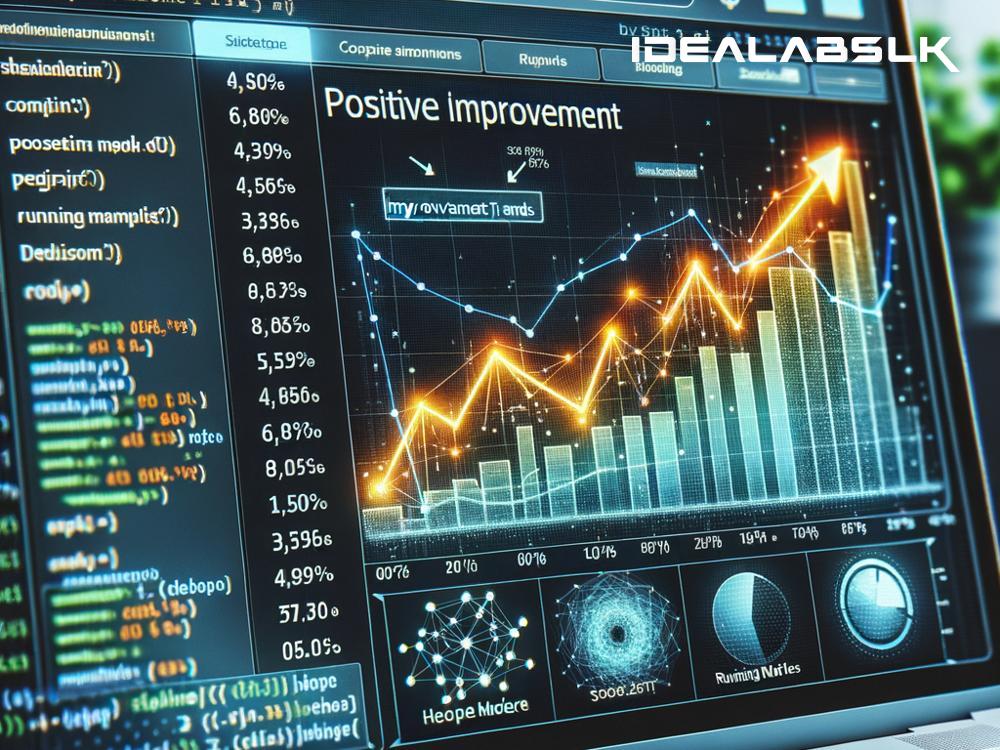In this era of digital marvels, the role of machine learning in refining and revolutionizing various fields has been undeniably monumental. Among these, website performance optimization has emerged as a bright spot, witnessing transformative changes. But what exactly does this entail, and how is machine learning stepping in to elevate the game? Let’s dive into an easy-to-understand exploration of how machine learning is redefining website performance optimization.
What’s Machine Learning?
Before we plunge into the depths of website optimization, let's unravel the mystery of machine learning. Imagine you have a smart assistant who learns from the past experiences and tasks you've given them. Over time, they anticipate your needs, making more accurate decisions on your behalf without being explicitly told every time. That's machine learning in a nutshell. It’s a branch of artificial intelligence (AI) where systems learn and improve from experience without being explicitly programmed for every possible scenario.
The Quest for Speed and User Experience
In the realm of websites, two prime factors dictate the success or failure: speed and user experience. First, if a website takes ages to load, visitors are more likely to depart before they’ve even seen what you offer. Second, if navigating your site feels like solving a complex puzzle, users will flee quicker than you can say “bounce rate.” This is where website performance optimization comes into play, ensuring your site is not only fast but also provides a seamless user experience.
The Magic Wand of Machine Learning
Now, let’s explore how machine learning acts as a magic wand, enchanting the world of website optimization.
1. Predictive Loading
Imagine if your website could predict what a user will likely click on next and prepare that page in advance. That's predictive loading. Machine learning algorithms can analyze user behavior patterns and predict their next moves. By doing so, they can preload pages or content, drastically reducing load times and enhancing the user experience.
2. Personalized Experiences
Not all visitors are the same, so why treat them identically? Machine learning enables the creation of personalized user experiences by learning from individual user interactions. It can adjust content, layouts, and even navigation based on users' preferences and past behavior, making the website more relevant and engaging for each visitor.
3. Real-Time Performance Adjustments
Websites face fluctuating traffic and varying user interactions, which can affect performance. Machine learning algorithms can monitor website performance in real-time, identify potential bottlenecks, and adjust resources accordingly. This ensures that the website remains fast and responsive, even under heavy load.
4. Optimizing for Mobile Users
With the increasing dominance of mobile browsing, optimizing websites for mobile users has never been more important. Machine learning can analyze how users interact with websites on different devices and automate adjustments to design, layout, and content to ensure optimal performance across all devices.
5. Image and Video Optimization
Visual content enriches user experience but can significantly slow down your site. Machine learning comes to the rescue by intelligently optimizing images and videos without compromising quality. It can dynamically resize, compress, or even change formats based on the user’s device and connection speed, ensuring fast load times and a visually appealing site.
The Future is Bright
The integration of machine learning in website performance optimization is just the beginning. As technology evolves, we can anticipate even smarter AI systems that will further enhance the speed, efficiency, and personalization of websites. This could open new horizons for online experiences, making websites more intuitive, responsive, and tailored to individual needs.
Wrapping Up
Machine learning is no longer a futuristic concept; it's here, revolutionizing how we optimize websites for better performance. By harnessing the power of AI to predict user behavior, personalize experiences, adjust in real time, enhance mobile usability, and intelligently manage visual content, websites can not only achieve but exceed the speed and user experience standards expected by today's internet users.
The transformation brought about by machine learning in website performance optimization is a testament to the relentless pursuit of excellence in the digital age. As businesses and web developers embrace these advancements, we're stepping into a world where websites are not just faster and more efficient, but smarter and more adaptive to our individual needs. The future of web optimization is bright, and it's powered by machine learning.

